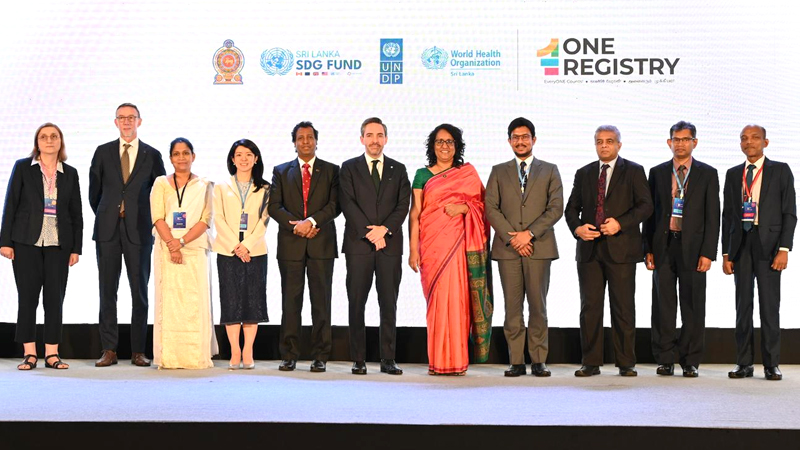Sri Lanka has embarked on a transformative journey to modernise its Civil Registration and Vital Statistics (CRVS) system.
Led by the Government with support from the United Nations Development Programme (UNDP) and the World Health Organization (WHO), and funding through the UN Sri Lanka Sustainable Development Goals (SDG) Fund, the country is aligning its CRVS modernisation with its broader digital transformation agenda. Titled ‘OneRegistry’, this initiative is transforming civil registration to make it faster, more accessible, and fully digital.
A digital civil registration system means more than just administrative efficiency. For parents, it eliminates long waits for birth certificates. For doctors and midwives, it provides faster access to birth and death records, enhancing public health planning and emergency response. For marginalised communities, it lifts barriers to essential services such as healthcare, pensions, and Government assistance.
The launch of ‘OneRegistry’ is a milestone, bringing together Government leaders, UN agencies, development agencies, private sector and civil society organisations.
Speaking at the launch, Prime Minister Dr. Harini Amarasuriya highlighted the transformative potential of the program, administration and driving the Government’s digital agenda.
The initiative focuses on three key areas: Going digital: Replacing paper records with a digital system that speeds up registration and reduces errors, connecting systems, and linking civil registration with key Government databases to make services smoother and more reliable. The initiative will ensure a functioning interoperable CRVS database with at least three Government institutions, empowering communities, making sure people know their rights and how to use the new system, particularly in underserved areas.
Speaking on the role of the Registrar General’s Department, Lakshika Ganepola said, “These efforts complement national digital initiatives, such as the e-NIC (National Identity Card) and Sri Lanka Unique Digital Identity (SLUDI) projects, advancing the country’s vision of a unified and digitally inclusive society. By streamlining registration processes and improving service delivery, the initiative is set to benefit all Sri Lankans, including vulnerable groups.”
Transforming a country’s civil registration system is no easy feat — it needs coordination across multiple sectors, from health and education to governance and technology. To ensure this large-scale transformation benefits everyone, Governments must unite ministries, civil society, the private sector, and development partners in a shared effort. At the launch of the One Registry initiative, UN Resident Coordinator in Sri Lanka, Marc-André Franche, highlighted how the UN is leading efforts to create a platform where diverse stakeholders can collaborate effectively.
“By bringing together the right expertise and resources and ensuring joint efforts align with national priorities, we are building bridges between sectors to help drive a transformation that is inclusive, efficient, and sustainable,” he said.
The ‘OneRegistry’ initiative is about ensuring no one is left behind as Sri Lanka progresses. By providing every individual with a recognised legal identity, ‘OneRegistry’ empowers marginalised communities, lifts barriers to essential services, and fosters social inclusion. This means greater access to education, healthcare, and social protection for all Sri Lankans, giving them the tools needed to face the future with confidence.




